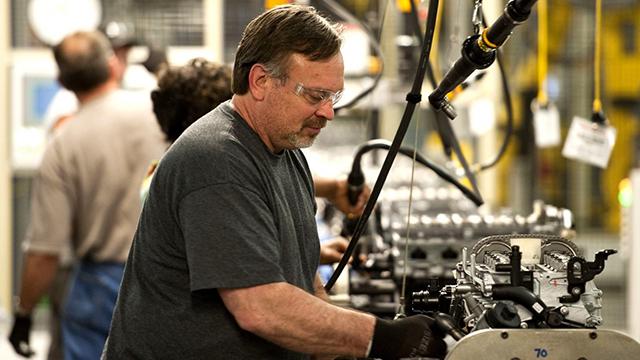
The founder of modern management science, Peter Drucker, considered excessive executive pay an assault on good enterprise management practice.
Peter Drucker, the analyst who founded modern management science, died in 2005 at age 95. At his death, business leaders worldwide hailed this Austrian-born American for his enormous contribution to enterprise efficiency.
But Peter Drucker also cared deeply about enterprise morality. In his later years, he watched — and despaired — as downsizing became an accepted corporate game plan for pumping up executive paychecks. Drucker could find “no justification” for letting CEOs benefit financially from worker layoffs.
“This is morally and socially unforgivable,” he would write.
If Drucker were still writing today, he’d likely be even more unforgiving. CEOs these days aren’t just slashing worker jobs to add on to their own rewards. They’re slashing worker pay as well — and no CEO may be benefiting more from shrinking paychecks than Ford chief executive Alan Mulally.
Mulally has restored Ford to profitability, his many business and political admirers never tire of pointing out, without having to take any taxpayer bailout. But Mulally has indeed enjoyed a hefty bailout — from his workers.
Entry-level workers at Ford used to make $28 an hour. That rate fell by half when the auto industry financial crunch first hit five years ago and now sits a bit above $19. And since the crunch all Ford workers, not just entry-level workers, have given up cost-of-living wage adjustments and health benefits.
Auto industry execs have declared these worker concessions as absolutely necessary. Without lower compensation for auto workers, the argument goes, the auto industry would never become “globally competitive.” This same reasoning apparently doesn’t apply to compensation for Ford CEO Mulally.
Ford has just announced that Mulally’s pay package for 2012 nearly hit $21 million. His personal rewards for the year almost doubled the pay that went last year to his chief German rival, Daimler CEO Dieter Zetsche, and even more stunningly dwarfed the $1.48 million Toyota CEO Akio Toyoda took home.
But the magnitude of how well Mulally has done for himself — since Ford workers started coughing up concessions — only swings into real focus when we step back and contemplate the towering pile of Ford shares of stock he now holds. In just over a half-dozen years, CNN Money reports, Mulally “has amassed holdings valued at more than $300 million.”
Among America’s CEOs, of course, Mulally hardly stands alone. The outrageousness of American CEO rewards has been building for some time.
Back in 1986, as Forbes noted last week, America’s ten highest-paid CEOs together pocketed $57.88 million in compensation. In 2012, the top 10 pulled in $616.4 million, about five times as much as the 1986 total after taking inflation into account.
Over that same 26-year span, average weekly wages for America’s workers barely increased at all.
So what should we be doing about CEO compensation? In France, the newly elected government of President François Hollande has placed a 450,000 euro cap — about $580,000 — on executive pay at the 52 companies where the French government holds a majority stake.
This cap will essentially limit executives at these publicly controlled companies to no more than 20 times the pay of their lowest-paid workers.
The French people, for their part, would like to see their government apply a similar cap to executives at all corporations, not just those companies where the government holds a controlling interest.
Earlier this month, just after Swiss voters passed a national referendum that bans executive signing and merger bonuses, a major French pollster asked whether people favored or opposed creating a “maximum wage” for all corporate CEOs. A whopping 83 percent of the French public supported the idea.
The French may have been reading their Peter Drucker. American CEOs, Drucker believed, should earn no more than 20 or 25 times their worker pay. Last year, in Great Recession-ravaged Michigan, Alan Mulally pulled in over 500 times the pay of Ford’s lowest-paid workers.
3 WAYS TO SHOW YOUR SUPPORT
- Log in to post comments











